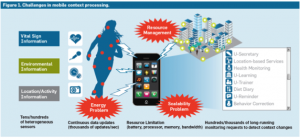S. Sithrama Iyengar
Research Profile
Dr. S. Sithrama Iyengar’s research has been funded by NSF, DARPA, MURI, DOE and ONRL. His research works are in the area of Sensor Networks & Communications, Distributed & Parallel Computing, and Software Engineering. Professor S. S.Iyengar is the Director of Research at Junction Networks Company Inc. in New Jersey and he is also on the Board of Directors. He is formerly the Roy Paul Daniels Professor and Chairman of the Computer Science Department at Louisiana State University and currently he is the Ryder Professor and Director of the School of Computing and Information Science in Florida International University.
Dr. Iyengar, a computer scientist of international repute, is a pioneer in the field of distributed sensor networks, computational aspects of robotics, and oceanographic applications. His innovative work called the Brooks-Iyengar algorithm along with the Prof. Richard Brooks from Clemson University is applied in industries to solve real-world applications using modern MINIX kernels. Dr. Iyengar is best known for introducing novel data structures and algorithmic techniques for large scale computations in sensor technologies and image processing applications. One of Iyengar’s landmark contributions with his research group is the development of grid coverage for surveillance and target location in distributed sensor networks, published as part of an article in IEEE Transaction on Computers in 2002. Iyengar has also explored the role of game theory in sensor networks. Iyengar’s fundamental work has been transitioned into unique technologies. All through his three-decade long professional career, Professor Iyengar has devoted and employed mathematical morphology in a unique way for quantitative understanding of computational processes for many applications.
Current Research and Funding
- Mobicon: A Mobile context-Monitoring Platform User context is defined by data generated through everyday physical activit
 y in sensor rich, resource-limited mobile environments. Mobicon middleware lets mobile application developers leverage diverse user contexts without concern for the precision of context recognition or the battery and computational resources of smartphones and other sensor devices in context monitoring. Jointly with KIAST, South Korea. March 2012.
y in sensor rich, resource-limited mobile environments. Mobicon middleware lets mobile application developers leverage diverse user contexts without concern for the precision of context recognition or the battery and computational resources of smartphones and other sensor devices in context monitoring. Jointly with KIAST, South Korea. March 2012.
NSF & ONR Funded Projects
- WAMI: Automated Techniques for Inferring Actionable Information from WAMI data, DARPA. The New Generation of Persistent Wide Area Motion Video Surveillance (WAMI) Systems enables joint forces at tactical and op
 erational levels conducting ubiquitous, monitor of urban or rural areas, attempting to alert, intercept and eliminate hostile elements in a secured area, requiring minimal presence on the ground. Jointly with LSU, July 1 2011 (DARPA funded).
erational levels conducting ubiquitous, monitor of urban or rural areas, attempting to alert, intercept and eliminate hostile elements in a secured area, requiring minimal presence on the ground. Jointly with LSU, July 1 2011 (DARPA funded).
- Science, Mathematics, and Technology Scholars – Increasing Diversity through Mentoring, National Science Foundation/S-STEM. January 8, 2011- July 31, 2015(4 Years NSF funded).
- Multi University Research and Training in Protection of Critical Information Infrastructures, National Science Foundation. This NSF funded project is a collaborative project with Florida International University and Louisiana State University, Duration: Starting from August 2011 – July 2013(2 Years)
- Secure and Survivable Cyber-Centric Sensor Networks: Multi-institutional team (LSU, Latech, GSU, ORNL) develops secure and survivable communication protocols and cognitive radio platforms for the warfare environments. Algorithms and Architecture Research, DoD DEPSCoR Grant, July1, 2008 – June 30, 2011.
Awards and Honors
- Dr. Iyengar is a Member of the European Academy of Sciences, a Fellow of the Institute of Electrical and Electronics Engineers (IEEE), a Fellow of the Association of Computing Machinery (ACM), a Fellow of the American Association for the Advancement of Science (AAAS), and Fellow of the Society for Design and Process Science (SDPS). He has received the Distinguished Alumnus Award of the Indian Institute of Science. In 1998, he was awarded the IEEE Computer Society’s Technical Achievement Award and is an IEEE Golden Core Member. Professor Iyengar is an IEEE Distinguished Visitor, SIAM Distinguished Lecturer, and ACM National Lecturer. Lifetime Achievement Award Conferred by ISAM(International Society of Agile Manufacturing ) IIT-Banares Hindu University for his lifelong contribution to the fields of Engineering and Computer Science ,December 17, 2012.
- Collaboration
- Oakridge National Lab
- Jet Propulsion Labs
- Purdue University
- University of Florida, Gainesville
- Duke University
- KIAST, South Korea
- Indian Institute of Sciences, Bangalore
Relevant Publications
- Scott C.-H. Huang, Hsiao-Chun Wu, Senior Member, IEEE, and Sundaraja Sitharama Iyengar, Fellow, IEEE, “Multisource Broadcast in Wireless Networks”, IEEE Transactions on Parallel and Distributed Systems, Volume 23, Issue: 40, Oct. 2012
- Lu Lu, Hsiao-Chun Wu, Kun Yan, S.S.Iyengar, “Robust Expectation- Maximization Algorithm for Multiple Wide-Band Acoustic Source Localization in the Presence of Non-Uniform Noise Variances”IEEE Sensors Journal,Vol. 11, No.3. March 2011.
- Youngki Lee, S.S. Iyengar, Chulhong Min, Younghyun Ju, Seungwoo Kang, Taiwoo Park, Jinwon Lee, Yunseok Rhee, and Junehwa Song, “Mobicon-A Mobile Context-Monitoring Platform”, Communications of the ACM Vol. 55 No.5, March 2012.
- S.S. Iyengar, N. Parameshwaren, Vir Phoha, N. Balakrishnan, Chuka D. Okoye “Fundamentals of Sensor Network Programming – Application and Technology “, John Wiley & sons and IEEE Press, pp. 352, November 2010.
- Xin Li, Wuyi Yu, Xiao Lin, and S. S. Iyengar, “On Optimizing Autonomous Pipeline Inspection” IEEE Transactions on Robotics, Vol. 28, No. 1, February 2012.
- R.R. Brooks and S.S. Iyengar “Multi Sensor Fusion: Fundamentals and Applications with Software”, Prentice Hall Publication Co., New Jersey 07458 (October 1997). Number of Pages : 488.